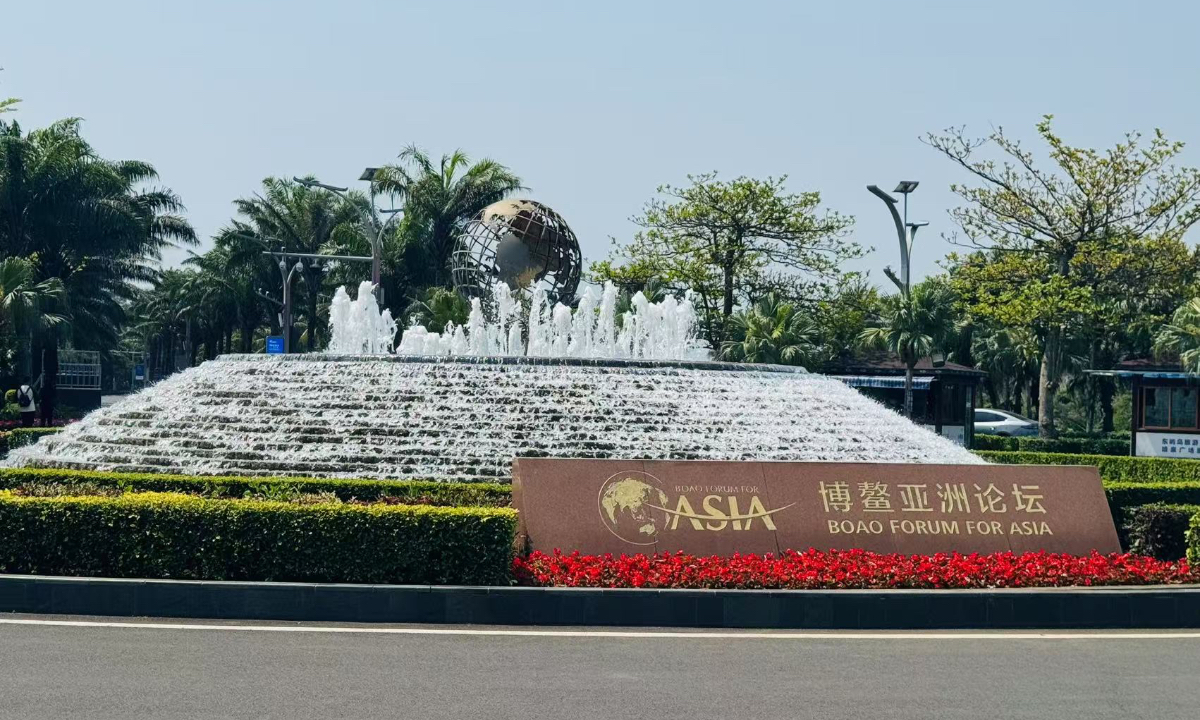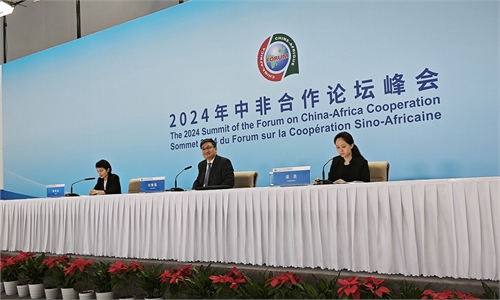China’s green transition a 'top-class model' for other countries: UN resident coordinator

The Boao Forum for Asia Annual Conference is being held from March 25 to 28, 2025 in South China's Hainan Province. Photo: Liu Yang/GT
Siddharth Chatterjee, the UN Resident Coordinator in China, told the Global Times on Wednesday that China's green transition is a "top-class model" for other countries and the country's achievement in poverty alleviation has set a "compelling example."
Chatterjee made the remarks in an interview on the sidelines of the Boao Forum for Asia (BFA) Annual Conference 2025, which is taking place in Boao, South China's Hainan Province.
As a global manufacturing hub, China is accelerating its transition toward a green economy - an effort that Chatterjee praised for its significance and determination.
"I see firsthand high pollution has been virtually eradicated out of Beijing. It is a top-class model of what other countries can aspire for," Chatterjee said. He added that he believes China can achieve goals of carbon peaking before 2030 and carbon neutrality before 2060, which means comprehensive green transformation of the economic system.
Chatterjee also expressed strong confidence in the prospects of the Asia-Pacific region.
"Bring together ASEAN - a market of 650 million people - along with countries such as India, Pakistan, Sri Lanka, Bangladesh, and Nepal, we are looking at nearly half of the world's population concentrated in Asia. This presents an incredible opportunity for the region to unite and advance toward economic growth, deeper integration, and sustained momentum. Such progress, as demonstrated by China, has the power to lift millions out of poverty. After all, China itself, with a population of 1.4 billion, has set a compelling example," said Chatterjee.
"What we need is more peace, more dialogue, more discovery, more diplomacy, and more multilateral forms of engagement," Chatterjee said. He noted that the UN 2030 Agenda for Sustainable Development and the Global Development Initiative provide shared goals for the international community, and countries should enhance cooperation to improve people's well-being.
"Once you start to improve the quality of life of your own people, they have more purchasing power," he said.



